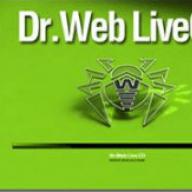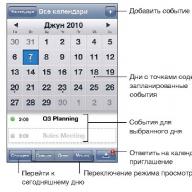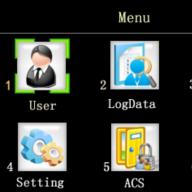As I understand it, Bruce Eckel’s “Philosophy of Java” is presented in Russian in 6 forms (not counting very old editions):
spoiler
1. Bruce Eckel. Java philosophy. Translation from the 3rd "English" edition. Original title "Thinking in"
Java". Publishing house Peter. Number of pages 976. Year of release 2003. The book is dedicated to java 1.4.
It seems to be not quite a complete edition (or maybe complete), but with a normal translation.
2. Bruce Eckel. Java philosophy. Translation from the 4th "English" edition. Original title Thinking in Java.
Number of pages 640. Year of release 2009. Publishing house Peter. Double-cropped edition with 
3. Bruce Eckel. Java philosophy. Translation from the 4th "English" edition. Original title Thinking in Java.
Number of pages 640. Year of release 2011. Publishing house Peter. Double-cropped edition with
terrible translation. The book is dedicated to java 1.5. 
4. Bruce Eckel. Java philosophy. Translation from the 4th "English" edition. Original title Thinking in Java.
Number of pages 640. Year of release 2013. Publishing house Peter. Double-cropped edition with
terrible translation. The book is dedicated to java 1.5. 
5. Bruce Eckel - Java Philosophy. Translation from the 4th "English" edition. Year of publication - 2015.
Publishing house "Peter". Number of pages - 1165. The book is dedicated to java 1.5. The so-called complete
edition. The translation doesn't seem to be very good. 
6. Bruce Eckel - Java Philosophy. Translation from the 4th "English" edition. Year of publication - 2017.
The number of pages is 1168. The translation is good. The book is dedicated to java 1.5. 
7. Two-volume book on Core Java: Java Library for a professional. Kay S. Horstmann, Gary Cornell.
Volume 1: Basics. Volume 2: Advanced Programming Tools. Year of manufacture 2014-2015 (ninth
edition, java 1.7). Up to and including the ninth edition, this two-volume work was published under the authorship of Kay S.
Horstmann and Gary Cornell, then it was published only by Kay S. Horstmann. 
8. The same two-volume book, but under the authorship of Kay S. Horstmann. Volume 1: Basics. Volume 2: Advanced Tools
programming. Year of release 2017 (tenth edition, java 1.8). 
Horstmann also has 2 small books (continuing numbering):
9. Java SE 8. Basic course. Original title Core Java for the Impatient. Kay S. Horstmann, 464 pp., 2016. 
10. Java SE 8. Introductory course. Java SE 8 for the Really Impatient. Kay S. Horstmann, 208 pp., 2014. 
Correct me if I'm wrong or missed something regarding the above books. What good/bad things can you say about these books? What to read and what not to read? What other books on Java can I read (in Russian or English)? Announce the entire list, please.
Most likely, I will not be mistaken in assuming that most of those who studied Java began to do this with the help of the famous book by Bruce Eckel: "Thinking in Java", known in the Russian edition as "Java Philosophy". Unfortunately, the most widely distributed electronic version (in Russian) is the 2nd edition of this book, based on version Java 1.1, which has long since lost its relevance. The innovations that appeared in successive versions of Java (and especially in Java SE5) were very significant, which led to a major revision of the book in its fourth edition (the translation of which was published in Russian). However, in an easy-to-read (and most importantly - for quick search) electronic format, the Russian version of this publication did not exist. Therefore, I decided to fill this gap and produce a complete version of this popular book in Wikibook format. I believe that this information will be interesting and useful not only for language learners, but also for everyone who works in Java due to the huge number of excellent examples illustrating almost all aspects of programming in this language. Especially when it comes to rarely used Java features.
Wikibooks "Java Philosophy" located at:
"Spring in Action"
Books from the series "..... in Action"(usually in PDF format and usually in English) are deservedly popular in certain circles :) Among them there are also capacious Talmuds, such as "JSTL in Action"(easy to read and with moderate knowledge of English, but suitable for the role of a good reference book on the topic), and more modest crafts, such as "Struts in Action"("not everything is gold..."). Book "Spring in Action" in this list is still from the category of “heavyweights”, and in every sense of the word. It's probably not easy to read it without fluent English. And the point is probably not in the complexity of the material presented (it is not complicated), but in the fact that it turned out to be overly “English-artistic” or something... Full of lyrical digressions, catchphrases, puns and other blah blah blah, language authors, quickly turns reading this reference book (in the original language) into a tedious process. But on the other hand, it allows you to find out what the word "draw"(usually “to draw”) can be used in the meaning of “to extract from” (lit. - “to pull, drag”). As a result (taking into account the general style of presentation adopted in the book) understand exact meaning phrases like: "...Spring draw this data...", it can be both difficult and extremely necessary at the same time. Therefore, readers of the chapters that I have not translated will have to decide for themselves along the way what the authors wanted in such cases: to express themselves poetically about the creation (recording) of the file, or to playfully talk about its reading.
This book was converted by me from PDF to Wikibook as a quick reference for personal use. Therefore, the translation is not total, but only in places for which there was enough enthusiasm. The remaining chapters were simply presented in a form convenient for quick search. It is published, EVERYTHING in the form - “as is”, and there is no need to blame the quality of the Russian text... I am not a professional translator, and I did not have a literary editor. Perhaps I will disappoint someone because I did not translate some places and chapters of the book (and I don’t even plan to translate them), but I had to leave it as a legacy for future generations
Wikibooks "Spring in action " located at:Programming is one of the most popular services in the IT field. Many people began to learn about this difficult industry and work in this direction. If the reader has always been interested in programming, but did not know where to start, then the book “Philosophy of Java” will be an excellent starting guide in this matter. The author, Bruce Eckel, is a true computer whiz and quickly explains the basic principles of working with code using clear language.
The Java language is considered one of the most popular programming languages around the world. This is due to its high flexibility and the possibility of its application in almost any area related to games, software, etc. The book for beginners "The Philosophy of Java" will help you master the main fundamentals, as well as key concepts, which allows you to make an excellent basis for deeper and perfect study of the science of programming. Bruce Eckel has done a truly colossal job, providing hundreds of live examples and thoroughly explaining all the key points throughout the book. With the help of this guide, any user who wants to learn the Java language will be able to lay down an excellent knowledge base and, based on them, begin an in-depth study.
The author recommends reading his book to all beginners and people who have just begun to engage in simple programming in the Java language. “Java Philosophy” is a guide to quickly and efficiently learning the basics of working with Java. The book pays attention to all the little things, as well as subtleties, starting with the interface and basic settings, and ending with complex combinations and techniques, which are shown in a real example using commands and clear codes with comments from the author.
Bruce Eckel will help you focus on the core purpose and philosophy of using Java for work, business, and other areas. The author also shows many examples of problems, talks about the reasons for their occurrence and the main methods for troubleshooting problems in the program code. Specialists working in the field of programming highly appreciated the book “Java Philosophy”, because it is a developmental textbook that will help you learn the Java language better. Although this is specialized literature, it is much easier to read than other books of a similar genre
On our literary website you can download the book “The Philosophy of Java” by Bruce Eckel for free in formats suitable for different devices - epub, fb2, txt, rtf. Do you like to read books and always keep up with new releases? We have a large selection of books of various genres: classics, modern fiction, psychological literature and children's publications. In addition, we offer interesting and educational articles for aspiring writers and all those who want to learn how to write beautifully. Each of our visitors will be able to find something useful and exciting for themselves.
In March last year I applied to a branch of a large international company in Samara (yes, I have had an abundance of arrogance and ambition since childhood). At that time I knew html, css, java, javascript (basics), pascal, visualbasic6, mysql queries, php, general presentation: c++. I didn't know Java at all. They offered me a job as a layout designer, but I refused. Only a programmer! Then they gave the list:
Bruce Eckel Thinking in Java (Russian translation of the 2nd edition or the original of the 4th - read both)
-Steve McConnell - perfect code.
-Gang of Four - Pattern Design. (this is almost the ABC of OOP)
-have the clearest possible understanding of the difference between j2se and j2ee.
in December the need for work arose. got a job in a small Samara web studio. It was immediately clear that these were scammers, but I needed any work that I could show to future employers. They didn’t pay (even though they were all ears with promises), but they brought the code up to design standards, and most importantly, they taught us where to look and what to look for in case of errors, what little things are easy to miss.
In addition to the literature above, I took the intuit course (now I understand that it is ridiculous in its scope, but in principle the basics are there)
At the end of February, I re-sent my resume and received an invitation for an interview. There were 6 interviews in total and lasted 1.5 months. Two of them took place via video link with Moscow. The whole picture was reminiscent of the movie "Come Tomorrow". But in the end I received a job offer. The contract was drawn up for part-time employment, because... At that time I did not have a diploma. Last month I received my diploma and the contract was renewed for full-time work.
Current position: Soft Engineer. The salary is more than satisfactory. Yesterday, in connection with the transition to full-time work, they raised it by 30%.
Even in that crooked office they asked for examples of work. I presented the work I completed as a freelancer. Even works in other languages are always much better than no work at all.
Ps: Blue diploma in PHYSICS. I'm completely self-taught, so it's all in your hands. I only have English from Free school (7 hours a week). although the American who came to us during his trip around the world doesn’t know him well. I barely understood half of it because of his accent. but this is not so critical in my department. All documentation is in English - you will learn it even if you didn’t know it)))))
Special thanks to this forum. I actually studied here- every day I studied all the topics that came across)




